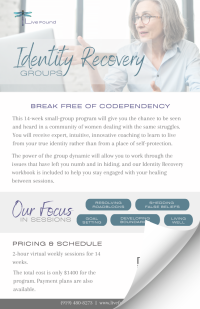Disclaimer: The majority of my clients navigating the effects of narcissistic, emotional abuse are women, so this blog is written from that perspective. However, we acknowledge that men, too, can be victims of abuse. Please read this blog exchanging the pronouns if necessary. This blog is a partial adaptation of a presentation I gave to counselors, coaches, pastors and other people-helpers.
The Plea for Help: Give Her a Voice
One of the biggest issues creating stumbling blocks for breaking free and healing from emotional abuse is a well-meaning response that does not take into account the deviant thinking of someone who resorts to emotional powering-over to manage their environment.
The moment someone is silenced in a relationship is the moment trust is broken. This is true in marriage and in counseling. When trust is broken in the counseling relationship for someone who has experienced emotional trauma, very little of what you say to help will be heard, and that which is heard will be filtered through suspicion and shame.
Quote: “What hurts the most becomes not the cruelty of the abuser but the silence of the bystander.” – Unknown
If your client has been systematically silenced, given little to no room to speak of concerns, hopes, and opinions, she will be hypervigilant to any implication about what she’s done or not done to contribute to or maintain the abuse. She’s been blamed and condemned for too long! Don’t ask questions about her part in the abuse or how she could have been different. She has done what she knew to do. She needs you to hear, empathize, and validate her pain. The very best thing you can do is ask, “How can I help?”
Expect this Response: “Please make the abuse stop.”
Believing the Victim’s Story
She may have spent many years being told or implied that she’s stupid, oversensitive, over-reactive, over-emotional, and that nothing about her core personhood is worth listening to or caring about. she has been gaslighted for so long She doesn’t trust her own perceptions or memories. She has been taught to ignore her own intuition and gut feelings. Every conversation feels like another exposure to how immature, selfish, and unforgiving she’s become. Her spouse has been an expert at hooking her back into the brokenness to heap on more brokenness, all the while blaming her for it and demanding that she fix what he broke.
Sexual Coercion: Her husband demands sexual “intimacy” and then claims she is in sin because she cringes from his touch. There is not a bit of it that feels intimate or loving.
Helping bring new life to her heart entails validating her experience and helping her move through it to live well. Use your client’s perspective to help her navigate to a place of health and wholeness.
Affirming Her Worth
She needs to know that her thoughts are her own. Her feelings are her own. Her dreams, desires, hopes, and longings are her own, and they are valuable simply for that. They do not have to be conformed to his.
She needs to hear you say, “That DID hurt.” She needs to know she is believed. What she endured has absolutely been devastating, painful, frightening, and sinful against her. She has been managed down to silence.
She might be very confused, but if she can learn to listen to her gut and begin to trust her perceptions, thoughts, and feelings, she can use them to inform her next steps toward healing.
Emotional Consequences: At this point, it’s normal to have a dead heart toward her spouse! It’s normal to be ambivalent about reconciling even IF he changes. Do not allow her to feel guilty for not having “love” for him. That is the very natural consequence of the way he has treated her heart! And it may not be a consequence that God takes away just because he “repents” and “changes.”
The Path to Healing
God CAN restore the victim’s heart toward her spouse, but that may not happen. It will NOT happen without the controlling partner making very real, lasting behavioral changes that start with a heart transformed by God. Even if he does, the consequence of sin may very well be the permanent death of the victim’s heart toward him, and that will be a stumbling block they will have to deal with. It is important to avoid making reconciliation the goal UNTIL you have re-established safety and trustworthiness.
Key Point: Her “trust” doesn’t make him trustworthy. Her “forgiveness” doesn’t make the abuse stop. There must be change.
Three Key Takeaways
- Give Her a Voice: Allow her to speak her truth without judgment or implications about her role in the abuse. Ask how you can help and expect the request to stop the abuse.
- Believe Her: Validate her experiences and emotions. Acknowledge the harm she has endured and affirm her worth and feelings.
- Focus on Safety and Trust: Do not push for reconciliation until safety and trustworthiness are re-established. Recognize that her feelings of ambivalence and lack of love are natural consequences of the abuse.


